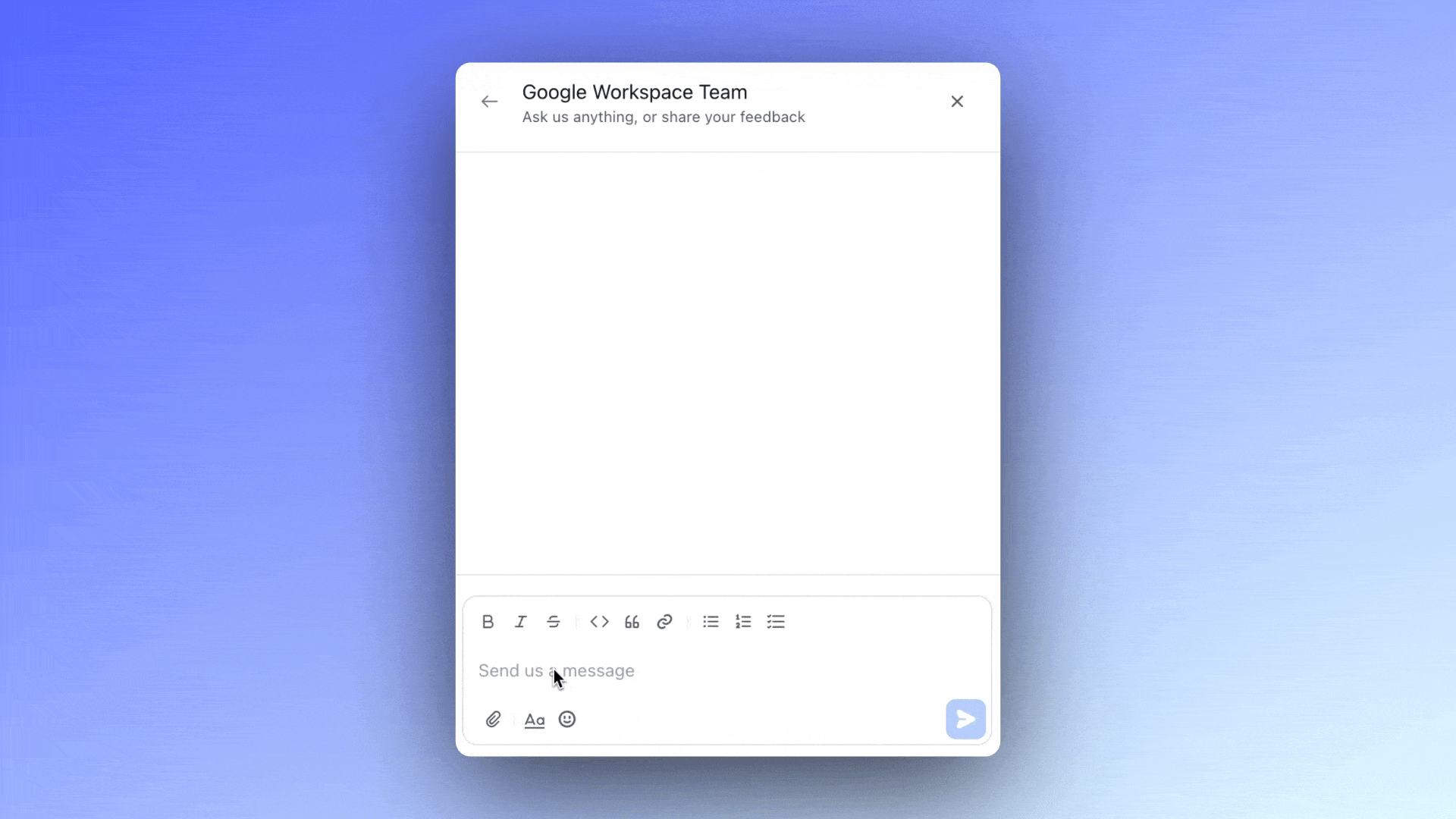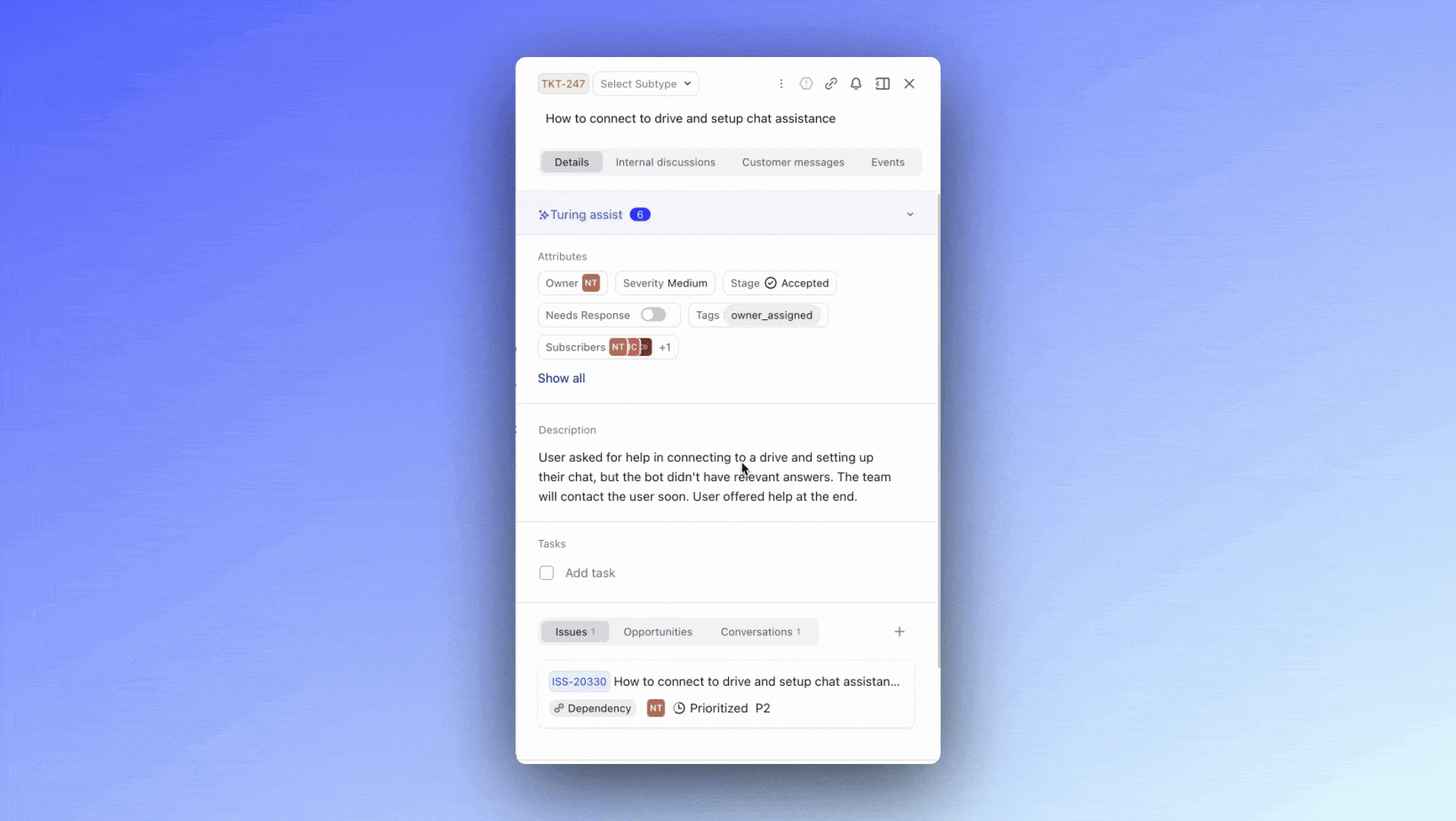The year is 1764. A mill worker is hunched over his spinning wheel tirelessly trying to weave on a spindle that can produce only one thread at a time. Training for the job took years, the process was inefficient, and it was impossible to scale. That is until the Spinning Jenny was introduced. The Spinning Jenny could produce eight threads at once, making each worker 800% more productive. With this new way of working, textile workers could never go back to life as it was.
And now with AI Agents, neither can your support team.
We’ve been hearing a lot of promises about what AI can do over the last two years, but one of the most exciting advancements is the birth of AI agents. AI agents can independently determine the best course of action to reach a desired outcome. They can work within ambiguity, conversationally interact with users to get information, and continuously learn to keep improving. What does this mean for your human support agents who now have to partner with them?
Do AI agents come in peace?
When people first started understanding the enormous potential of AI, there was as much suspicion as there was excitement. It’s easy to see why there was fear that AI could take away jobs. When we claim that AI agents can handle your entire L1 customer support, we’re essentially saying that you don’t need human agents running L1 support anymore. However, this isn’t necessarily a bad thing.
Customer support teams are arguably one of the teams under the most pressure in organizations. While companies are aware of the tactical advantage good customer support can provide, the department is still under pressure to cut costs. Even internally, attrition in support teams continues to be high, with most individuals citing a lack of career growth and fulfilment at work as reasons for leaving. At the same time, the revenue impact of bad customer service is huge - over 70% of customers are likely to switch to a competitor after a bad experience. Support teams are thus faced with a paradox: deliver customer support that is quick, responsive, and accurate, but do so with tighter resources. This is where AI agents come in.
AI agents work as full-fledged members of your support team, handling customer interactions, augmenting agent capabilities, and uncovering new insights to improve support performance.
AI agents as the first line of defence
Support agents don’t wake up in the morning excited to help a user reset their password. A large volume of queries coming in from users are repetitive and relatively straightforward. They don’t need your human agents actively working on them and, equally important, your human agents would also much rather be working on something more challenging.
AI in L1 support isn’t brand new. Almost every company has some kind of chatbot that is able to scrape information from a knowledge base and answer common questions. But AI agents can go much farther.

There are three parts to an AI agent for L1 support - what we call an ‘autonomous agent’:
Search: Users can search for information using Gen AI search agents and get answers instantly. The AI agent pulls information from a number of sources, including knowledge base articles, past conversation history, and support tickets to provide the most accurate response.
Deflect: Users can ask the agent questions and get instant responses. This saves your support team from having to answer the same questions repeatedly.
Take action: Perhaps most exciting of all, AI agents can actually perform actions that previously required a human agent. The AI agent can decipher what a user’s goal is and understand what actions it needs to take to successfully complete it. An AI agent for a travel company can, for example, book tickets, cancel tickets, and suggest new routes, all without human intervention.
This marks the foray of AI into L2 support, beyond just L1. As AI agents get more skilled, they will be equipped to handle a wider range of tasks autonomously. This frees up your human team to work on higher-order tasks that challenge them.
AI agents to augment your support team
AI won’t be able to solve 100% of user queries. You will see fewer tickets land in your human agents’ inbox, but there will still be tickets. Even in these cases, AI agents can work side-by-side with your human agents to make them better equipped to tackle cases.

A large portion of a support agent’s time goes into searching for the right solution, finding resources, composing responses, and coordinating with engineering and product teams. While problem-solving for complex cases requires technical knowledge and creative thinking, there are parts of the process that can be made more efficient. An AI agent helps your human agents work faster and smarter by:
- Surfacing relevant articles to troubleshoot and offer solutions
- Suggesting the next best course of action and message templates
- Summarizing conversations so human agents don’t have to go through the entire thread for context
- De-duplicating tickets and clustering them to find common themes in customer tickets
This leaves your human agents with more time to debug unique problems and think out of the box to find solutions. AI assistance can be especially helpful to train new agents. Onboarding an agent and educating them about the product can be a long process - which is challenging if you’re dealing with attrition and need agents to ramp up quickly. An AI agent working alongside new agents instantly gives them the resources they need, effectively training them on the job.
AI agents to answer the previously unanswerable
Support managers are asked tough questions that are even tougher to find answers to. Reporting in most support tools isn’t adequate and managers have to export data to Snowflake or Tableau. And these tools are so complex that you need a dedicated analyst team to interpret and report data. A support manager rushing into a meeting isn’t going to be able to answer questions like “What is the revenue impact of high-priority tickets?” “What part of the product is getting the most tickets?” and “What are the common themes incoming tickets fall under?” on the fly.
This is where AI agents prove their worth to managers and not just agents. Our ‘Analyst Agents’ can scrape through all your product, customer, and people data to provide insights and create reports in seconds. No more complex queries and poring over sheets - all you need to do is ask the agent a question in natural language and it will fetch the right data for you. Think of it as an entire data team at your fingertips - but better.

Data teams usually report data retrospectively, but Analyst Agents can preemptively detect potential SLA breaches and customer health so your team can take quick action. AI agents will also improve the accuracy of metrics like CSAT, the ultimate measure of a support team’s performance. Today, CSAT collection is manual and depends on a customer filling out a survey. But most customers ignore the survey so CSAT scores aren’t always representative of actual performance. AI agents can scrape through customer conversations, detect sentiment and calculate a CSAT score that is far more accurate than current methods can provide.
Bolstering artificial intelligence with emotional intelligence
With AI agents expanding their capabilities, where does this leave your support team? A human agent’s biggest advantage will always be that they’re, well, human. Customer support often runs high on emotion. Customers usually reach out when something is going wrong. They are looking for empathy and emotional support, not just a technical solution. With AI agents managing most manual tasks, your human agents now have more time and mind space to handle complex cases.
The result is a win-win. Your agent experiences improve because they now feel more challenged at work and empowered to successfully tackle tasks. Your customer experiences also improve because they get instant resolutions when they have straightforward problems and an agent who is fully informed about their history and ready to devote more time to helping them when they have more complex problems. This is what the support team of the future looks like: AI agents and human agents working synergistically to deliver the best possible experience for the end-user.





